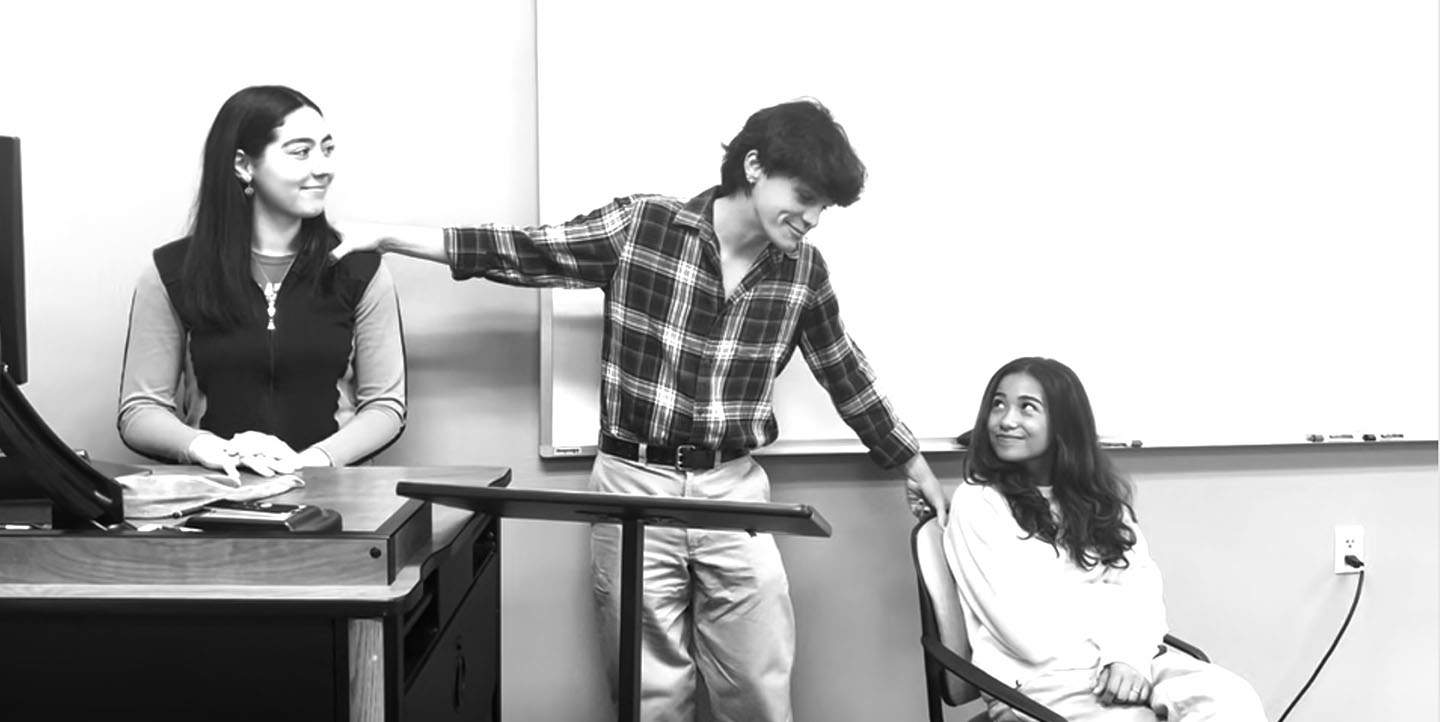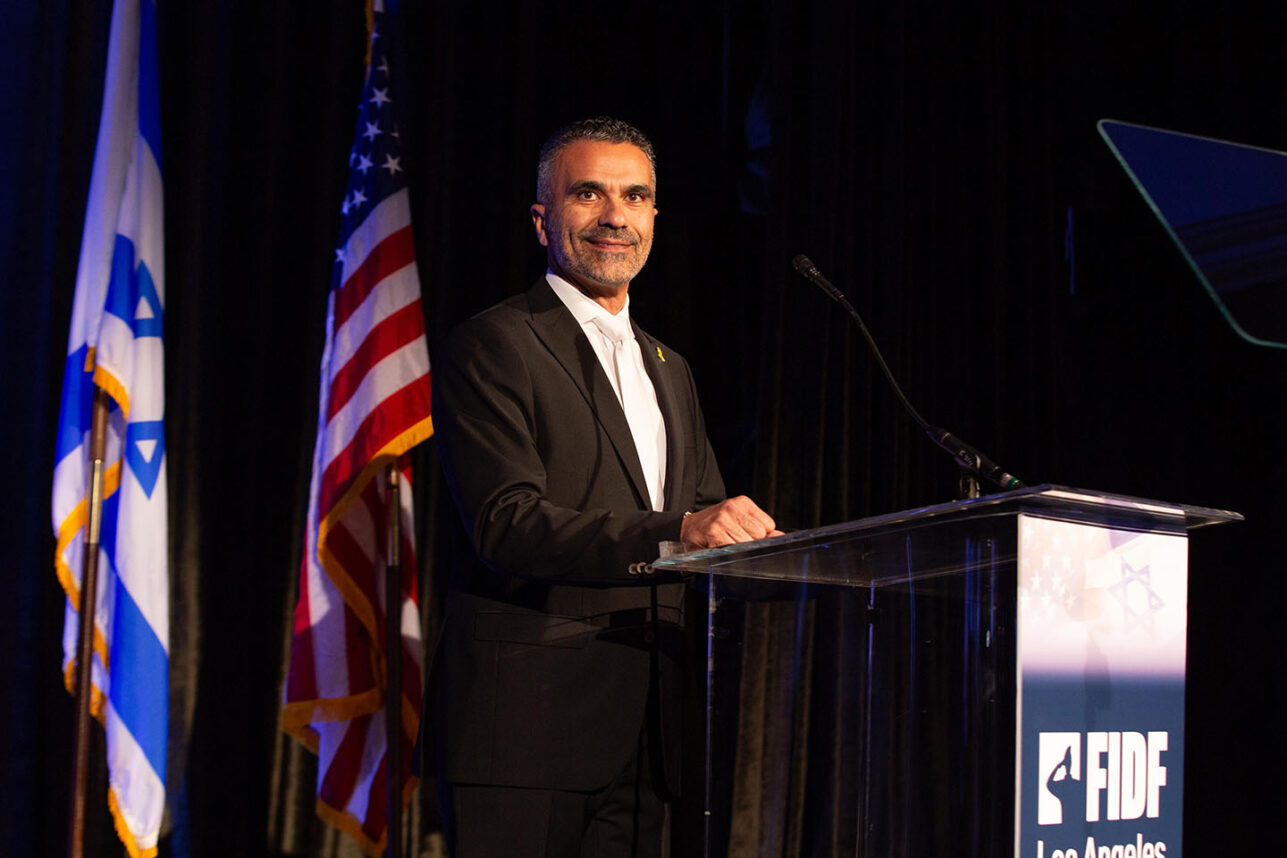Michele Prince had an epiphany while sitting at a conference table nine years ago. At the time she was an account manager at a prestigious Westside advertising agency with a health insurance company as a client.
“[We were] talking about restricting people’s access to health care and how to put a positive spin on it. No one else seemed to have a problem with that,” she recalled. “I thought, ‘I can’t do this.’ I knew I needed to be on the other side of the table somehow and advocating for people to get access.”
Within a year, Prince chucked her high-paying, 15-year career in advertising to enroll in a joint program for a master’s in Jewish communal service from the Hebrew Union College-Jewish Institute of Religion (HUC-JIR) and a master’s in social work from USC.
Starting July 1, Prince will head the Kalsman Institute on Judaism and Health, a department within HUC-JIR. She takes over for retiring director Rabbi William Cutter, who founded the institute in 2000 as a national center for training, collaboration and dialogue on health care, healing and spirituality in relation to Judaism.
“The Kalsman Institute demonstrates the many ways in which the power of faith, ritual and acts of compassion are able to bring healing and hope,” said Rabbi David Ellenson, HUC-JIR president. “Michele Prince brings expertise in health care advocacy and a commitment to the role that Judaism’s values and traditions can play in the areas of pastoral education, counseling and public health education that will strengthen our institution’s mission.”
Prince said people don’t always realize how Judaism and health intersect.
“Judaism has a significant history of practices and theories for how to work with people when they are having health crises, as well as how to live a healthy life,” she said, citing bikkur cholim (visiting the sick) and practices surrounding death and dying as examples.
“Modern thinking from our ancient texts” can provide insights about such contemporary issues as disability and economic injustice within the health care system, she added.
Prince credits a number of factors for spurring her transition from the advertising world to the field of Jewish communal service.
The youngest of three daughters, Prince grew up in suburban Detroit. Her parents, both concentration camp survivors, met one another in a displaced person’s camp in Germany. Her mother’s sister was the couple’s only surviving relative.
While her father talked openly about his experiences, her mother never spoke with her children about the past. But when Prince’s parents got together with friends, conversation inevitably turned to the Shoah. At 16, Prince faced loss when her mother died.
Prince went on to graduate college with a degree in advertising and communications and landed a job with Bozell Worldwide, the advertising agency servicing Chrysler Corp. Prince, still in her 20s, managed multimillion-dollar budgets, jetted around the country and rubbed shoulders with the country club set.
Her travels frequently took her to Los Angeles, and she fell in love with the city. In 1994, Prince landed a job with the Rubin Postaer and Associates. She embraced the L.A. lifestyle, living and working in Santa Monica, partying with her colleagues and admiring the ocean from her office window.
But she eventually started craving “something more.” Seeking a way to tap into Judaism, Prince enrolled in a Jewish yoga class at her local yoga studio. “The classic L.A. moment,” she said with a laugh. There she met Rabbi Judith HaLevy, who was teaching a class on creatively expressing one’s Judaism at Mishkon Tephilo synagogue.
Prince enrolled in the class and began to attend services more frequently. Eventually, “Friday night happy hour turned into Friday night Shabbat dinner.”
She joined ACCESS, the young adult program of The Jewish Federation of Greater Los Angeles, where she met her future husband, Jeffrey. She spent six months in Israel, participating in several programs and volunteering for the Shoah Foundation.
When she returned to the United States, Prince knew she wanted to be involved with a Jewish nonprofit organization. But she was coaxed back into the advertising world, where she found herself representing “the big, bad health insurance company.” The conference table epiphany happened soon afterward.
In school, she was drawn to the area of bereavement, attributing it to “the legacy of the Holocaust” and her mother’s early death. Together with another graduate student, Prince created The Jewish Bereavement Project, a Web site with resources for those who have lost a loved one. The project was funded by a grant from the Kalsman Institute.
As part of her studies, Prince did an internship as a clinical social worker at the USC Norris Cancer Institute and found her calling. She remained there after graduation, providing counseling, running support groups and guiding families through end-of-life experiences.
“It was very meaningful work,” said Prince, who continues in this role one day a week.
In 2004, Kalsman Institute’s Cutter contacted Prince about the associate director position.
She took the job and has since managed the institute’s day-to-day operation, fiscal health, projects and programs, along with helping Cutter formulate the vision for the institute’s
future.
“We have worked together for two years as two entirely different personalities,” said Cutter, who will continue to be involved with Kalsman Institute special projects. “She has great organizational skills and considerable business savvy. She is a superb counselor to our students. She will make this project flourish, and her clinical supervisory skills will benefit the entire Hebrew Union College Los Angeles campus.”
Prince acknowledged Cutter’s substantial legacy. “There’s no way I can fill his shoes, and I’m not trying to,” she said. “I want to continue what he’s begun and help actualize some of the ideas we’ve created together. We’ve got good things on the table; I want to shape those ideas and make them a reality.”
For more on the Jewish Bereavement Project, visit http://www.jewishbereavement.com.





















 More news and opinions than at a Shabbat dinner, right in your inbox.
More news and opinions than at a Shabbat dinner, right in your inbox.